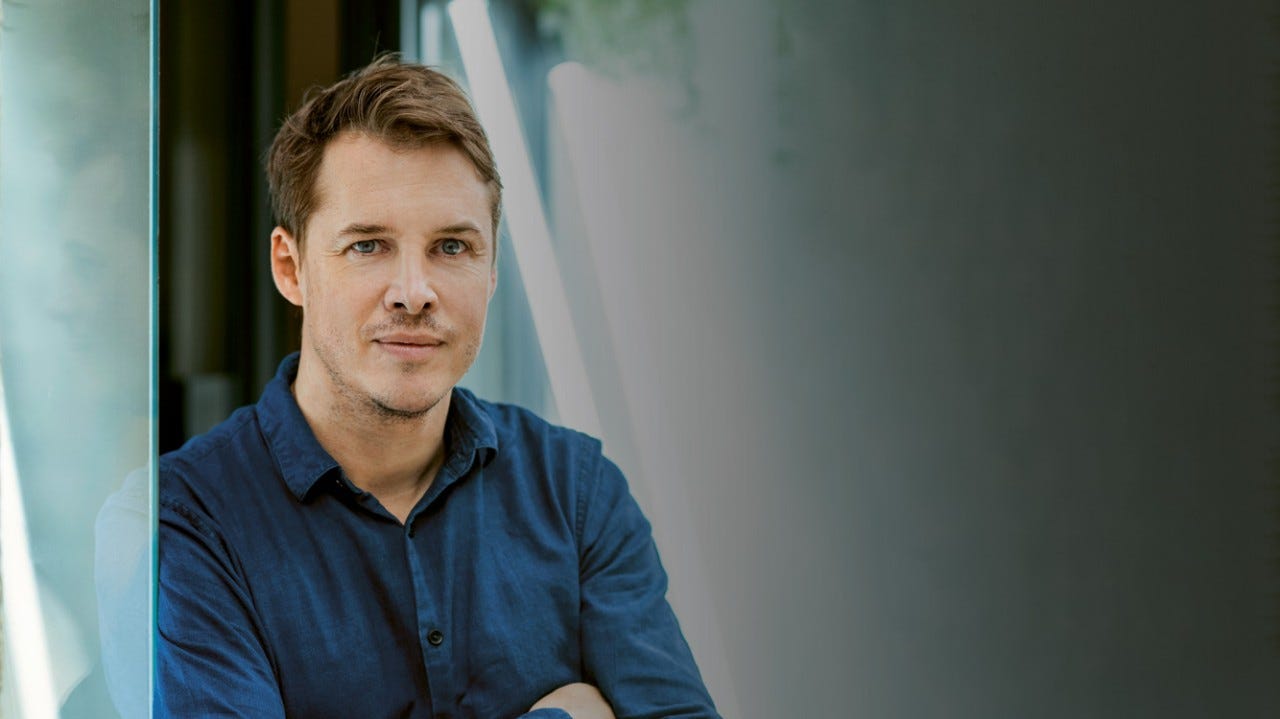Organ donation in Switzerland: a life-affirming decision
Franz Immer, medical director of Swisstransplant, talks about the fears and facts surrounding organ donation in Switzerland.

Franz Immer, it’s always difficult to think about your own death. Many would like to donate organs, but they don’t put it in writing. What can you do?
At the moment, we have around 120,000 members in the national organ donor register. That may sound like a lot, but it’s not at all. The main problem really is that people don’t like to think about their own mortality. They usually need to be inspired by an event or a story in everyday life. I’ve found that media reports can trigger a whole wave of registrations. And information events at schools have also proved successful. People are legally allowed to decide for themselves whether they want to donate their organs from the age of 16.
How can I become an organ donor? Can I just carry a note with me or do I need an official organ donor card?
It is important to document your decision. Ideally, you should sign up as a donor in the electronic donor register. The big advantage in this case is that the register may only be called up after a decision has been made to discontinue therapy in the intensive care unit, i.e. when all treatment is futile. Many people are afraid that doctors will give up on them more quickly if they know that they are organ donors. That’s why many people prefer not to carry a card with them. This isn’t an issue with the electronic register.
Should I also explicitly state if I do not want to donate organs?
Definitely. This makes the decision easier for all concerned, and gives security and clarity that action is being taken in your best interests. In the register you can record whether and which organs or tissues you would like to donate. And you can also leave a message for your relatives in case you can no longer say anything. Often, in the end, communication is no longer possible. That is why it is so important to deal with the issue early on.
What kind of messages are these?
As a heart surgeon, I’ve seen on numerous occasions how relatives didn’t make it to the hospital in time. And I noticed that it was very important to the dying person to be able to pass on a message to them. That’s why we added a comment field to the register. Some just give brief instructions, such as “Please respect my decision”. While others thank their wives and children very touchingly.
Can I change my entry in the register at a later date?
Yes, you can change your registration at any time.
In brief: why should I donate my organs?
An organ donor can save the lives of up to seven people. An organ donation is a gift. It is an altruistic act of solidarity in a society in which you could be dependent on an organ yourself tomorrow.
Who gets the organs? In other words: Why should I donate my healthy liver to a heavy drinker? Or give my heart to a chain smoker?
These are common concerns. However, the vast majority of people on the waiting list for transplants cannot help their situation. In addition, there must be no additional diseases that could affect the outcome of the transplant. This makes it very hard for addicts, for example, to even get on the waiting list. Of course, it can still happen that patients need organs through their own fault. However, it is very unlikely that these patients will immediately destroy the next organ they get, because recipients have to take medication after the operation that only work if they stay away from alcohol and drugs. They have earned a second chance.
Can I decide who I want to donate my organ to?
In the case of a living donation, this is standard procedure. In the case of deceased persons, directed donations are very rare. Normally, doctors follow the order on the waiting list.
Which criteria are used to decide who is at the top of the waiting list?
Urgency and medical benefits are the top two criteria: the organ is allocated to the person who will benefit the most from it.
Can anyone be an organ donor? Even children, old people, sick people?
There are practically no exclusion criteria. Even people with tumours can be donors when the risk of the cancer spreading is low. Anyone – from babies to the elderly – can be organ donors. In fact, organs can be removed from newborns from when they are 44 weeks old. And our oldest donor to date was 88 years old.
Are the organs of an 88-year-old still good enough for successful donation?
At 88, only the liver comes into question, as it regenerates. With kidneys and lungs, the donor can be around 85 years of age at the oldest, and for the heart, around 75 years old. Organs donated by old people are more likely to be transplanted into old recipients. A young patient receives a younger organ so that he or she can benefit from it for as long as possible.
If I die at home or on the motorway – can my organs still be used?
Organ donors must be in the intensive care unit. Their ventilation and circulation must be stable so that all clarifications and the removal can be carried out. If you die at home or on the motorway, you can still donate tissues. Tissues, such as heart valves or veins, can be removed up to 24 hours after death.
How do you eliminate the possibility that a patient could wake up again?
In Switzerland, the patient must be brain-dead for organ removal. This means that the brain and brain stem are completely and irrevocably lost. Not every hospital has much practice in the appropriate diagnostics, think of a children’s hospital, for example. Therefore, only 14 out of about 70 hospitals diagnose brain death. The dual control principle applies: two trained experts with proof of experience independently examine the patient – clinically and usually also by computer tomography.
Is it 100% certain that a donor who is declared brain dead won’t feel pain during the transplant? Are they anaesthetised?
With brain death, the central functions of the brain have completely and irrevocably ceased. The spinal cord and thus also the reflexes remain intact, twitching or muscle contractions are also possible. For this reason, organ removal in Switzerland is performed under general anaesthesia, as is customary for all surgical procedures.
Is every organ that is removed used or are they also disposed of?
Organs are only removed if they can be assigned directly, i.e. if the organs are in working order and a suitable recipient has been found.
What are the chances of survival for the sick person who receives my heart, kidney or lung?
As we unfortunately have very few donors in Switzerland, many patients are seriously ill. It goes without saying that anyone who receives a new organ only shortly before death will need a long time to recover. However, it is known that transplanted kidneys function for an average of 20 years, sometimes even 40. With heart and liver recipients, 75% live for longer than ten years. After a lung transplant, 65% of recipients are still alive after ten years. Their quality of life is usually very high. Many patients who receive a lung transparent suffer from a congenital metabolic disorder – cystic fibrosis – which unfortunately cannot be cured by a transplant. But the outcome after organ transplants – if the patient survives the first three to six months – is good to very good with a life expectancy that can easily be thirty years.
How will my decision affect my relatives? Does organ donation impact on the process of grieving?
Families of organ donors receive the very best possible care. For example, they are put in touch with a Swisstransplant specialist who is present in the operating theatre and who then hands the body back to the family. It is a very close exchange that can last for months. However, the process in hospital does last a bit longer than usual: from the diagnosis of brain death, handover of the deceased is delayed by around 36 hours. At this point, organ removal has usually taken place and the patient has been closed up.
Will my relatives know who is receiving my organs and are they allowed to contact the person?
The process is anonymous. But we do tell the relatives which organs we were able to allocate. Of course, many want to know how the recipient is doing. We provide them with this information. Swisstransplant will only consider putting the relatives in touch if both parties make it clear that this is really what they want. We don’t want to put anyone under pressure or encourage closeness that is unwanted.
Facts and figures on organ donation
At the end of 2022, 1,442 people were waiting for at least one organ. The donation came too late for 83 people.
Last year, 570 people in Switzerland received an – often life-saving – organ. 116 of these received an organ from a living donor.
2,362 kidneys have been transplanted since 2017, making the kidney the most-donated organ in Switzerland.
Every week 1-2 people who are on the waiting list for a new organ die.
In over 50% of all cases, the will of the deceased is not known. Relatives must decide on behalf of the deceased whether to donate their organs.
An organ donor can save the lives of up to seven people. If the lungs and liver are split (divided) for transplantation, even nine.
There are 6 transplantation centres in Switzerland. These six hospitals are all authorised by the Federal Office of Public Health.
6 human organs can be donated and transplanted in Switzerland: kidneys, liver, lungs, heart, pancreas, small intestine.
Ischemic time: The period of time during which organs or tissues to be transplanted are not supplied with blood and thus with oxygen. This isn’t the same for all organs. However, the shorter the ischemic time, the better the function of the donor organ.
Presumed consent: Presumed consent is to apply for organ donation from around 2025: anyone who doesn’t want to donate their organs, will have to explicitly opt out.


